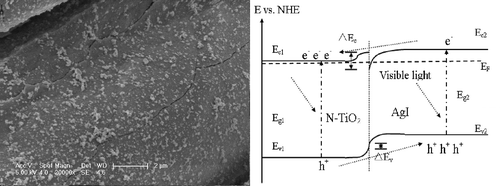Mingce Long and Deyong Wu say their fabric uses a coating made from a compound of titanium dioxide, the white material used in everything from white paint to foods to sunscreen lotions. Titanium dioxide breaks down dirt and kills microbes when exposed to some types of light. It already has found uses in self-cleaning windows, kitchen and bathroom tiles, odor-free socks and other products. Self-cleaning cotton fabrics have been made in the past, the authors note, but they self-clean thoroughly only when exposed to ultraviolet rays. So they set out to develop a new cotton fabric that cleans itself when exposed to ordinary sunlight.
Their report describes cotton fabric coated with nanoparticles made from a compound of titanium dioxide and nitrogen. They show that fabric coated with the material removes an orange dye stain when exposed to sunlight. Further dispersing nanoparticles composed of silver and iodine accelerates the discoloration process. The coating remains intact after washing and drying.
###
The authors acknowledge funding from Donghua University and the National Natural Science Foundation of China.

The visible-light-induced self-cleaning property of cotton has been realized by coating N-TiO2 film and loading AgI particles simultaneously.
The American Chemical Society is a non-profit organization chartered by the U.S. Congress. With more than 163,000 members, ACS is the world's largest scientific society and a global leader in providing access to chemistry-related research through its multiple databases, peer-reviewed journals and scientific conferences. Its main offices are in Washington, D.C., and Columbus, Ohio.
Contact: Michael Bernstein m_bernstein@acs.org 202-872-6042 American Chemical Society
